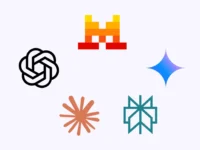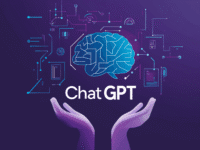Publié : 25 September 2025
Actualisé : 3 weeks ago
Fiabilité : ✓ Sources vérifiées
Notre équipe met à jour cet article dès que de nouvelles informations sont disponibles.
🚀 Reliability of AI Sources: A Crucial Issue
The rise of conversational artificial intelligences has revolutionized access to information. However, a recent Ahrefs study raises crucial questions about the reliability of the sources cited by these AIs. Indeed, 90% of the sources are not found in the top 10 search results of Google and Bing, highlighting a significant discrepancy with the relevance criteria established by these search engines.
This observation highlights the importance of verifying the information provided by AIs. The user must adopt a critical approach and not take the proposed answers at face value. The absence of authoritative sources in traditional search results raises questions about the AI’s selection methodology and the quality of the information provided.
The implications of this phenomenon are considerable, particularly in terms of the spread of misinformation or biased interpretations. It is essential to develop tools and methods to evaluate the reliability of AI sources to guarantee access to quality information. The transparency of algorithms and source selection processes is becoming imperative.
🚀 Comparison of AI Performance
Ahrefs’ study does not simply point out the overall problem of source reliability; it also compares the performance of different conversational AIs. Perplexity stands out positively with a higher rate of concordance with traditional search results. ChatGPT and Gemini, on the other hand, show more modest performance in terms of the reliability of the sources cited.
These performance differences can be explained by the diversity of algorithms and databases used by each AI. Perplexity seems to favor sources more in line with the relevance criteria of search engines, while ChatGPT and Gemini potentially explore a wider, but less validated by traditional information validation instances, range.
This comparison highlights the importance of competition and innovation in the field of AI. Competitive pressure can encourage developers to improve source reliability and the transparency of their algorithms, for the benefit of users.
🚀 Implications for the Future of Information Retrieval
The Ahrefs study highlights the challenges to be met to ensure access to reliable information in the age of AI. The question of source validation becomes central and requires in-depth reflection on the part of developers, researchers, and users.
The development of automatic source verification tools could be a promising avenue. Algorithms could analyze the reputation of websites, the consistency of information, and the presence of potential biases. Media and information literacy is also becoming a major issue in training users to critically consume online information.
The future of information retrieval rests on a subtle balance between exploiting the capabilities of AI and guaranteeing reliable and verified information. Collaboration between the various actors is essential to meet this challenge and build a more transparent and responsible digital ecosystem.
“Trust in information is an essential pillar of our democratic societies. The rise of AI must be accompanied by in-depth reflection on the reliability of sources and the fight against disinformation.” -IActualité
❓ Frequently Asked Questions
How could the AI source selection methodology be improved to better match the criteria of search engines like Google and Bing?
What are the consequences of the spread of biased or erroneous information by AIs, particularly in sensitive areas such as health or current events?
Why do ChatGPT and Gemini show more modest performance than Perplexity in terms of source reliability, and what measures could they take to improve their results?
Is systematic verification of information by the user truly a sustainable solution in the face of the exponential growth in the volume of information generated by AIs?
🎥 Explanatory Video
Video automatically selected to enrich your reading






















0 Comments